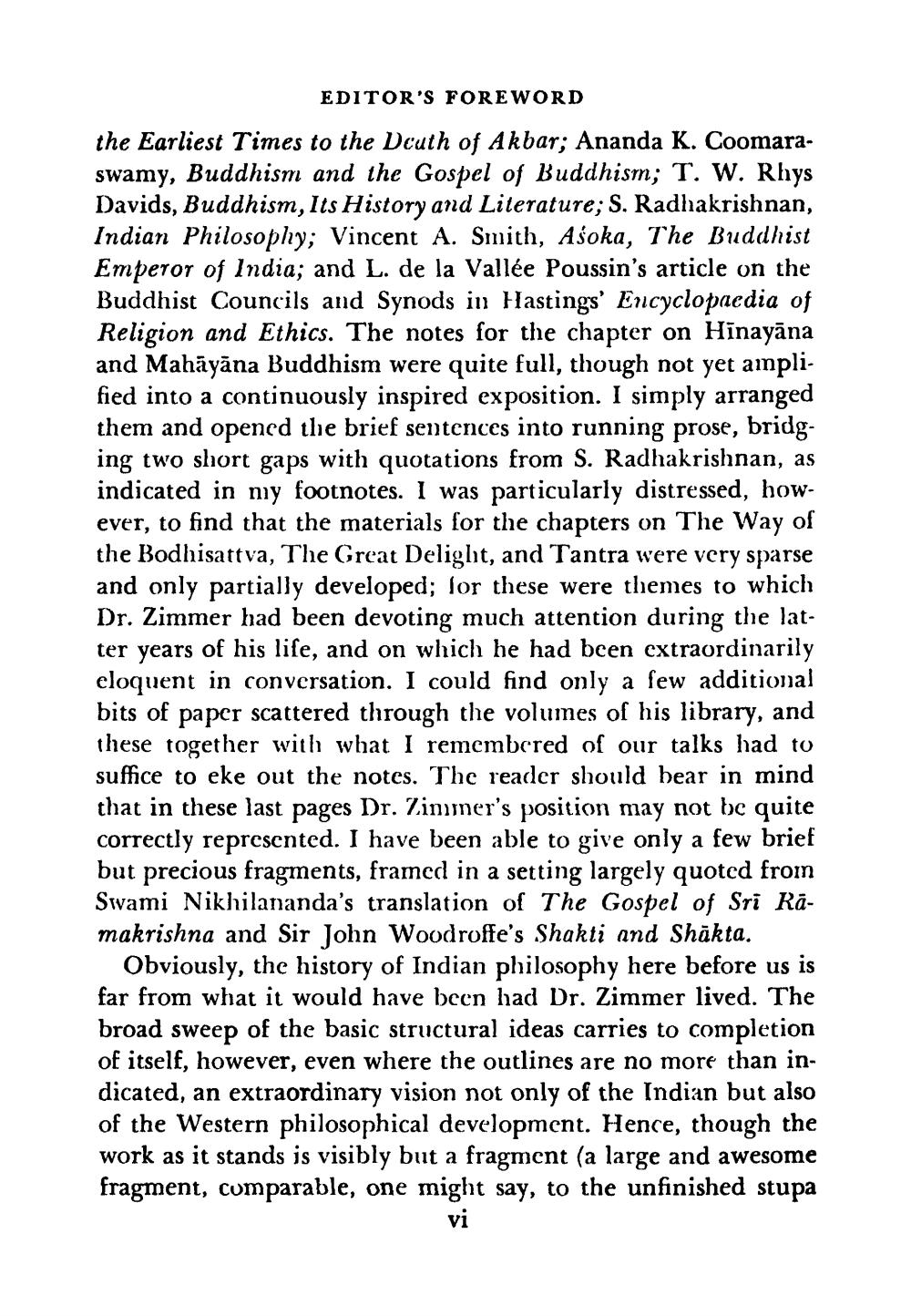Book Title: Philosophies of India Author(s): Heinrich Zimmer, Joseph Campbell Publisher: Routledge and Kegan Paul Ltd View full book textPage 8
________________ EDITOR'S FOREWORD the Earliest Times to the Douth of Akbar; Ananda K. Coomaraswamy, Buddhism and the Gospel of Buddhism; T. W. Rhys Davids, Buddhism, Its History and Literature; S. Radhakrishnan, Indian Philosophy; Vincent A. Smith, Asoka, The Buddhist Emperor of India; and L. de la Vallée Poussin's article on the Buddhist Councils and Synods in Hastings' Encyclopaedia of Religion and Ethics. The notes for the chapter on Hinayāna and Mahāyāna Buddhism were quite full, though not yet amplified into a continuously inspired exposition. I simply arranged them and opened the brief sentences into running prose, bridging two short gaps with quotations from S. Radhakrishnan, as indicated in my footnotes. I was particularly distressed, however, to find that the materials for the chapters on The Way of the Bodhisattva, The Great Delight, and Tantra were very sparse and only partially developed; for these were themes to which Dr. Zimmer had been devoting much attention during the latter years of his life, and on which he had been extraordinarily eloquent in conversation. I could find only a few additional bits of paper scattered through the volumes of his library, and these together with what I remembered of our talks had to suffice to eke out the notes. The reader should bear in mind that in these last pages Dr. Zinimer's position may not be quite correctly represented. I have been able to give only a few brief but precious fragments, framed in a setting largely quoted from Swami Nikhilananda's translation of The Gospel of Sri Rāmakrishna and Sir John Woodroffe's Shakti and Shākta. Obviously, the history of Indian philosophy here before us is far from what it would have been had Dr. Zimmer lived. The broad sweep of the basic structural ideas carries to completion of itself, however, even where the outlines are no more than indicated, an extraordinary vision not only of the Indian but also of the Western philosophical development. Hence, though the work as it stands is visibly but a fragment (a large and awesome fragment, cumparable, one might say, to the unfinished stupa viPage Navigation
1 ... 6 7 8 9 10 11 12 13 14 15 16 17 18 19 20 21 22 23 24 25 26 27 28 29 30 31 32 33 34 35 36 37 38 39 40 41 42 43 44 45 46 47 48 49 50 51 52 53 54 55 56 57 58 59 60 61 62 63 64 65 66 67 68 69 70 71 72 73 74 75 76 77 78 79 80 81 82 ... 709
